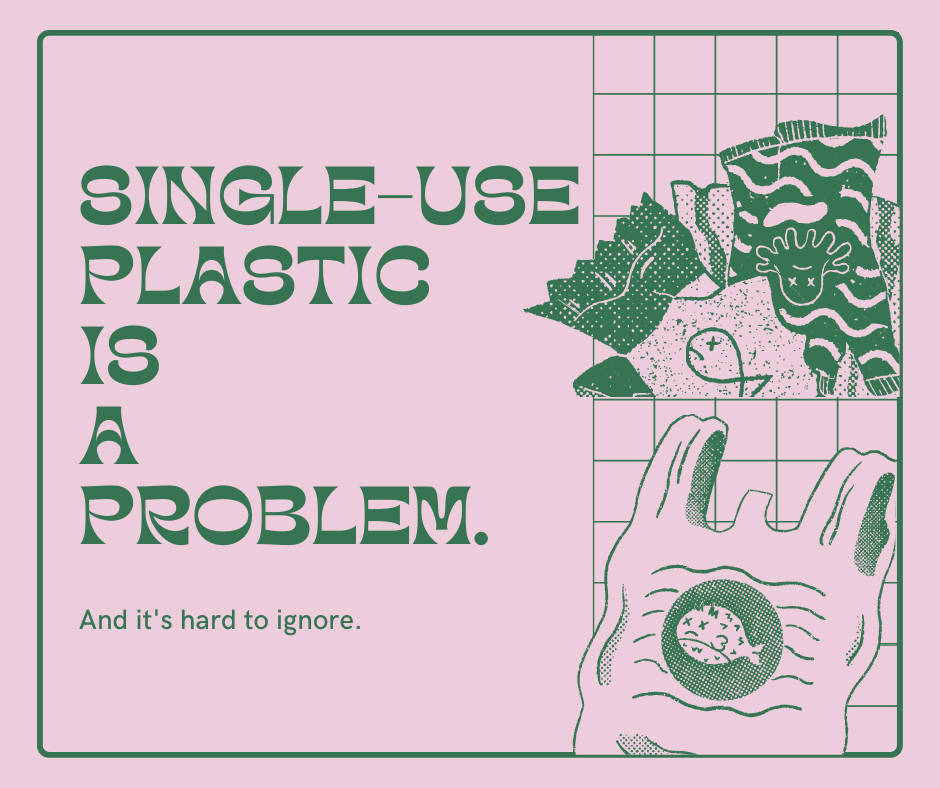

It's hard not to feel overwhelmed by the science indicating the impact single-use plastic has on the planet. While advancements in plant-based plastics have been made, most plastics are derived from fossil fuels, an industry whose exploits are widely known. Alongside that, in the US, we have been conditioned to believe that when we place our #1 and #2 plastics in the recycling bin, that bottle, cup, jug, or bucket will be turned into another piece of plastic to be placed on the store shelf. In reality, our plastic recycling rate is under 6%, while our plastic consumption is growing exponentially.
This is a huge problem, and not just for the next generation.
Here are 5 Ways to Reduce Plastic in Your Daily Life
- Say "no, thanks" more often. You are always being offered a straw, a to-go box (often styrofoam!), or a sack. Instinctively, you want to take it. If you think about it though, do you really need it? Curbing plastic waste means being a little uncomfortable until your plastic-free habits feel like second nature.
- Keep reusable bags everywhere. They hold more and have stronger handles than plastic sacks anyway!
- Buy in bulk, if you can. If you cook at all, you're going to need to keep rebuying your kitchen staples. Opt for bigger bags of your favorite products, or find a local refill store to cut back on unnecessary packaging waste.
- Make your coffee at home. Plastic cups and plastic-lined paperboard are not your friend. There are tons of tutorials online for how to make your favorite drinks at home.
- Ditch the plastic bottle. Make the switch to solid soap, shampoo, and conditioner and get single-use plastics out of your shower.
We're just a soap company, and we don't have all of the answers. But for us, taking care of the planet is personal. While we believe systemic change needs to happen in federal, state, and local governments, sometimes small steps in our personal lives can help us find the motivation to advocate for broader change. This is an issue that will not be solved by regular people using less; it is critical that we force our elected officials take direct action to fix our recycling system, and hold corporations accountable for the waste they produce, just to start.
This is our first blog post in a long time, so if you like this content, let us know!
